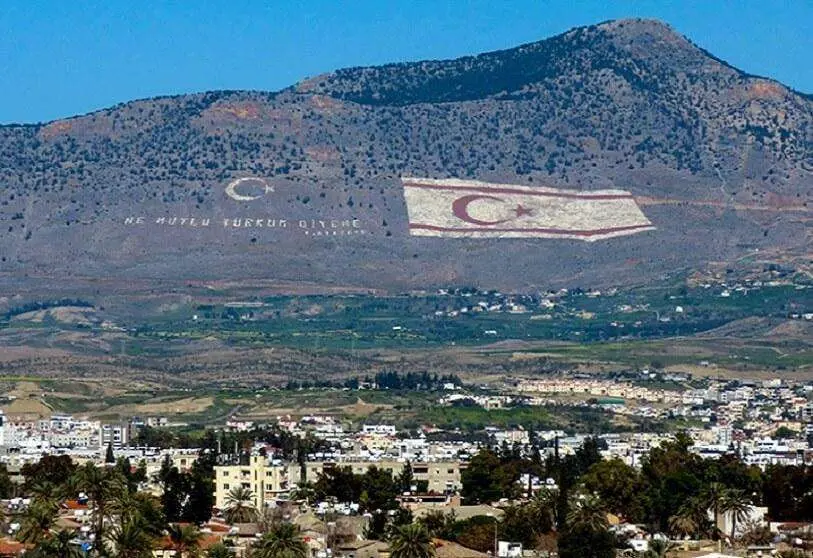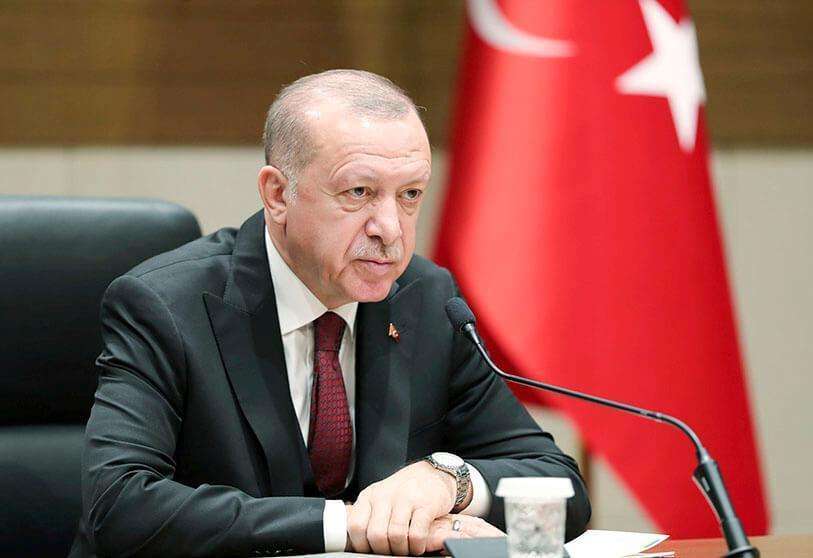Turkey victorious in Northern Cyprus

The streets of Northern Cyprus were flooded with Turkish flags last night. After an aggressive campaign in which the president and the prime minister have faced each other at the polls, the Turkish Cypriot citizens have decided to keep the connections that bind them to Turkey open.
Almost 200,000 people voted on Sunday in the election that gave the final victory to the pro-Turkish Ersin Tatar, who will be in charge of negotiating the future of the island with Turkey's shadow sheltering and supporting all his decisions.
The self proclaimed Turkish Republic of Northern Cyprus (RTNC) celebrated the second round of the presidential elections on Sunday, in which the president, Mustafa Akinci, who defends a federal and unionist solution for the island, was confronted with the nationalist and prime minister Ersin Tatar, the winner of the first round and Turkey's favourite.
The victory was close. Ersin Tatar, leader of the National Unity Party (UBP), got 51.8%, while his opponent, Akinci, who ran as an independent candidate, got 48.1%. The turnout was 62.5 percent, almost the same as in 2015 (62.35 percent), despite the adverse circumstances caused by the coronavirus.
These elections were a decisive step for the region. With the United Nations' announcement of the resumption of talks to settle the island's future, the citizens of northern Cyprus have chosen a clear model with their sights set on Turkey. With their decision to support Tatar, the Turkish Cypriots have opted for an even closer approach to Ankara, which had openly supported this candidate.
As regards the future of this island, which has been divided since the Turkish invasion in 1974, Tatar advocates the creation of either a confederation between the two communities or directly the definitive division and creation of two states.
Akinci, on the other hand, was keen to give the island's reunification a new chance with a bicommunal, bifederal solution, with full political equality for both communities, the model being negotiated for decades and which Tatar had given up.
The strong support received from Ankara was evident only a few days before the first round, when Tatar travelled to Turkey to forge with President Recep Tayyip Erdogan the opening of Varosha's ghost beach in Famagusta, a unilateral action which took place immediately afterwards.
The opening of this beach, sealed for 46 years, triggered national and international protests, as it violates resolutions of the United Nations. The UN, which sponsors the peace process, announced its intention to resume negotiations, interrupted in the summer of 2017, following this electoral process.
As soon as the result was known, Tatar's followers marched with Turkish flags through the streets of the Turkish Cypriot part of the divided Nicosia to the headquarters of the National Unity Party (UBP), of which the newly elected president is the leader.
In the first round on Sunday, Tatar took first place with 32.35% of the votes, followed by the candidate for re-election Mustafa Akinci, who was running as an independent and who won 29.84% of the votes.
In third place was the centre-left leader of the Republican Turkish Party (CTP), Tufan Erhürman, with 21.68 percent, who announced his support for Akinci in the second round. Erhürman said he shares principles with Akinci, "including on a federal solution to the Cyprus problem," as stated from the CTP.
On the other hand, Tatar, in addition to the UBP, was supported by the Renaissance party, whose candidate obtained only 5.36 percent in the first round. Foreign minister Kudret Ozersay, with 5.74 percent, and the leader of the Democratic Party, Serdar Denktash, with 4.20 percent, also missed out on the podium in the first round.

Turkey has controlled RTNC militarily and economically for decades. The Turkish lira is the one used on the streets and without the support of the Ottoman country the north of the island could hardly survive. This is why the results have been very divided.
On the one hand, there are those who want to continue as it is now and end up proclaiming an independent state under the umbrella of the Anatolian country (the RTNC is not recognised by any UN country except Turkey). And, on the other hand, there are the Turkish Cypriots who want to unify the island of Cyprus and to function as a united state supported by Greece and the EU.
Akinci was a great defender of the federation as a solution to the division of Cyprus and wanted to break the strong dependence on Turkey. During his mandate, he had several clashes with Turkish President Recep Tayyip Erdogan. Last week, Akinci claimed that he and his family were threatened by the Turkish government not to stand for re-election.
Meanwhile, Tatar advocates for the creation of two independent states and enjoys great support in Ankara. It will be the new president who will play the negotiating role in the negotiations for the reunification of Cyprus, an island split in two since Turkey's invasion of the north of the island in 1974.
The UN, which is sponsoring the peace process, announced its intention to resume negotiations after this electoral process. A few days before this new round of elections, Tatar defended his idea that a two-state model, possibly constituted as a confederation, will always be better than a federation like the one negotiated for decades without success.
Akinci, for his part, maintained that the best solution is a bicommunal federation, with political equality between the two communities, indicating that the best option is for the island's native citizens, both Greek and Turkish Cypriots, and those who have come from Turkey (Ankara has been colonising the north with a Turkish population), to be able to live " happily and peacefully " together.
According to local political analysts, Turkish Cypriot autonomy from Turkey is impossible for the time being, due to the economic dependence. Although, on the other hand, some Turkish Cypriots reject the cultural pressure from Turkey and insist on their secular character so that they do not want to become an Islamic territory.
We will have to wait for negotiations to begin at the United Nations to see what political direction the island is taking, how the territory is divided up and how Ankara will influence the decisions taken in Cyprus and, accordingly, in the eastern Mediterranean.








